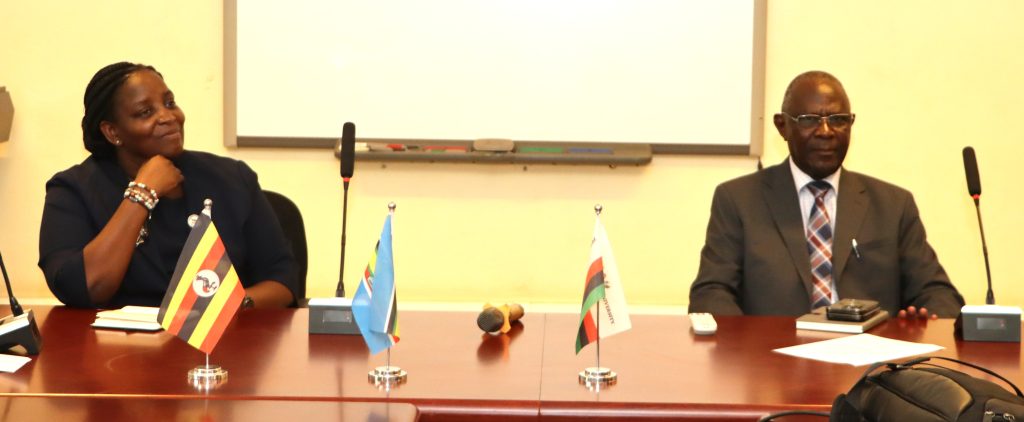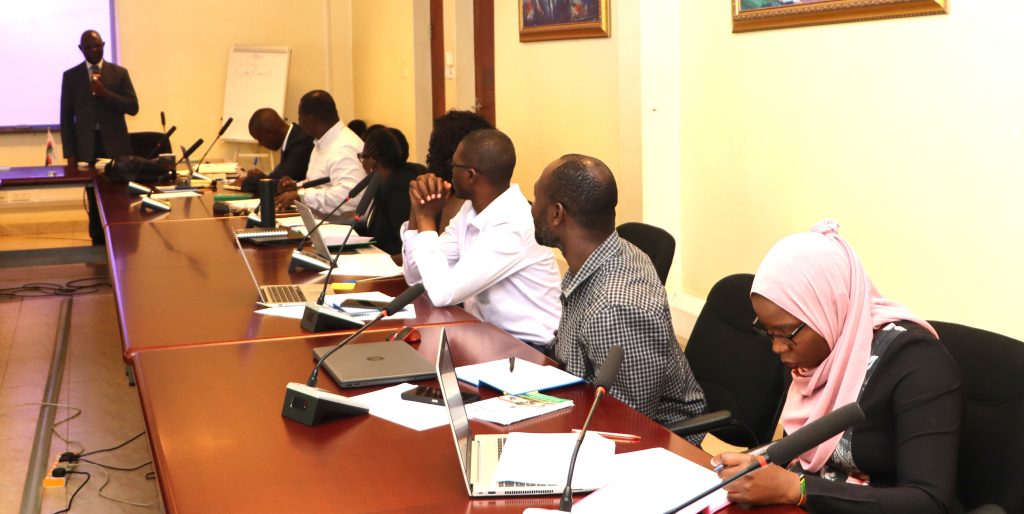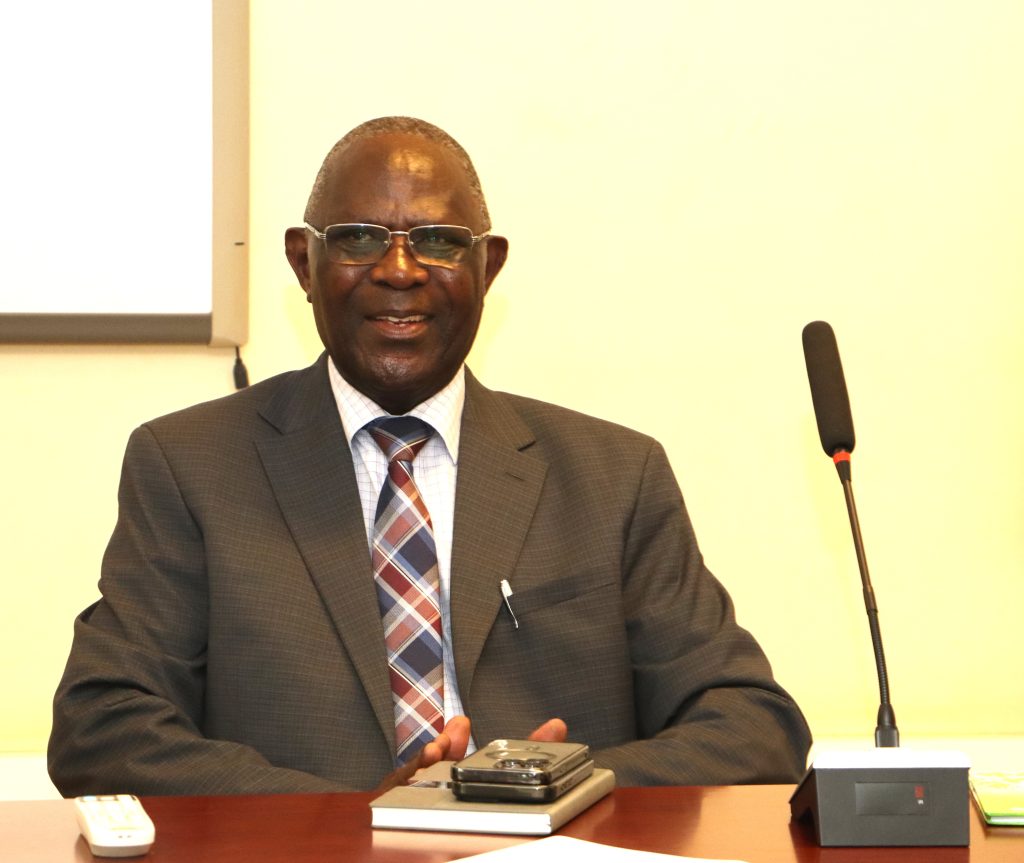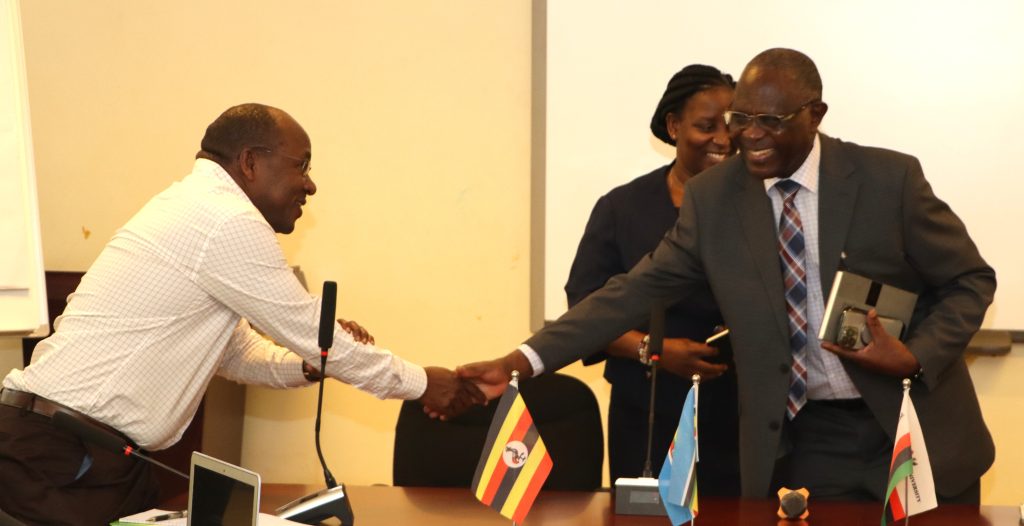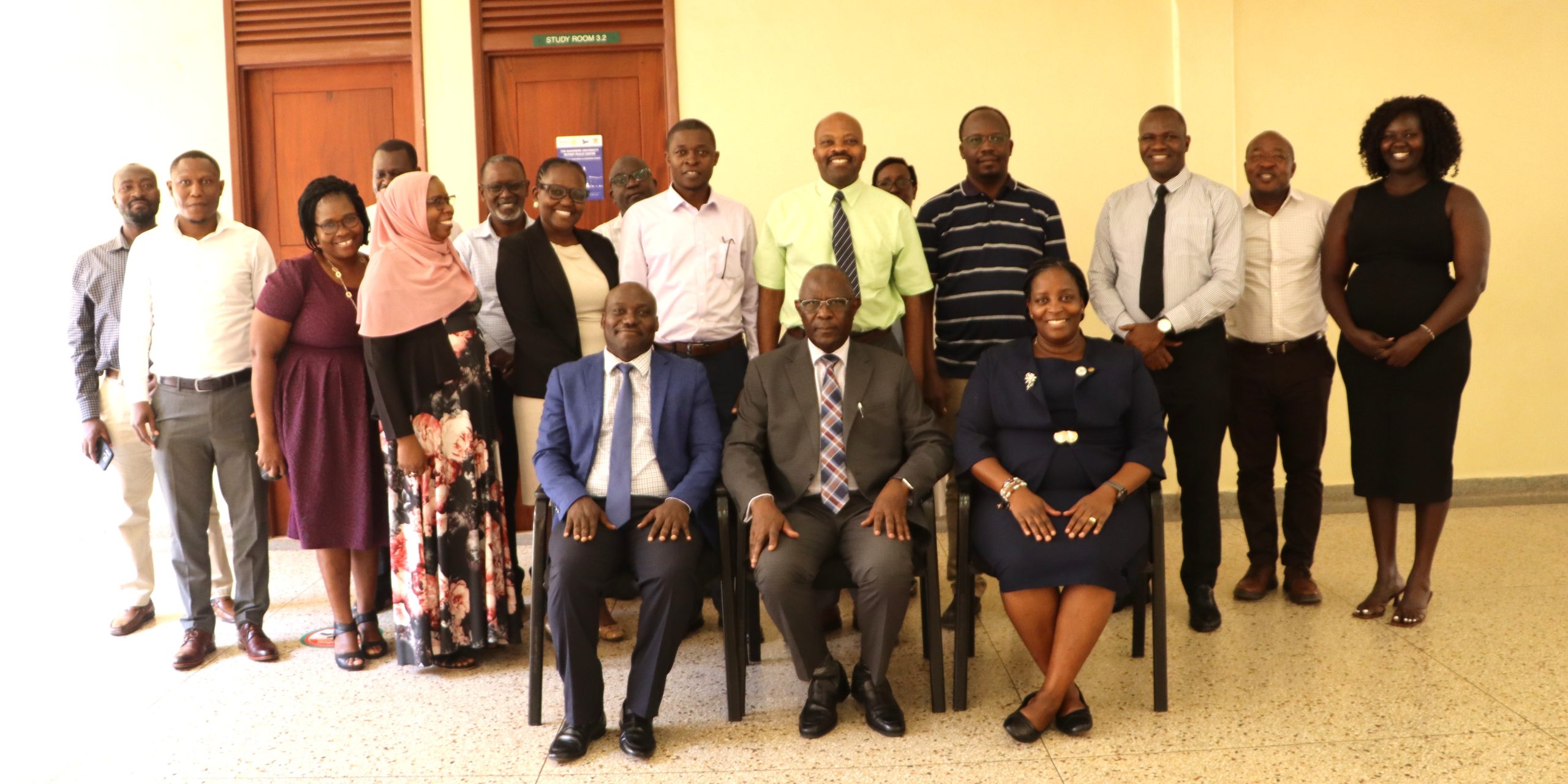In a decisive step toward enhancing leadership capacity and institutional effectiveness, the College of Humanities and Social Sciences (CHUSS) at Makerere University held its first-ever Monitoring and Evaluation (M&E) training for college leaders. The five day training was opened t at the Peace Rotary Learning and Training Centre located within the Frank Kalimuzo Teaching Facility, bringing together Deans, Heads of Departments, administrators, and other committed members of the college.
The training was a direct result of the vision and initiative of Associate Professor Hellen Nkabala, Principal of CHUSS, who recognized the urgent need to empower academic leaders with the tools and mindset necessary to evaluate progress, ensure accountability, and make data-driven decisions.
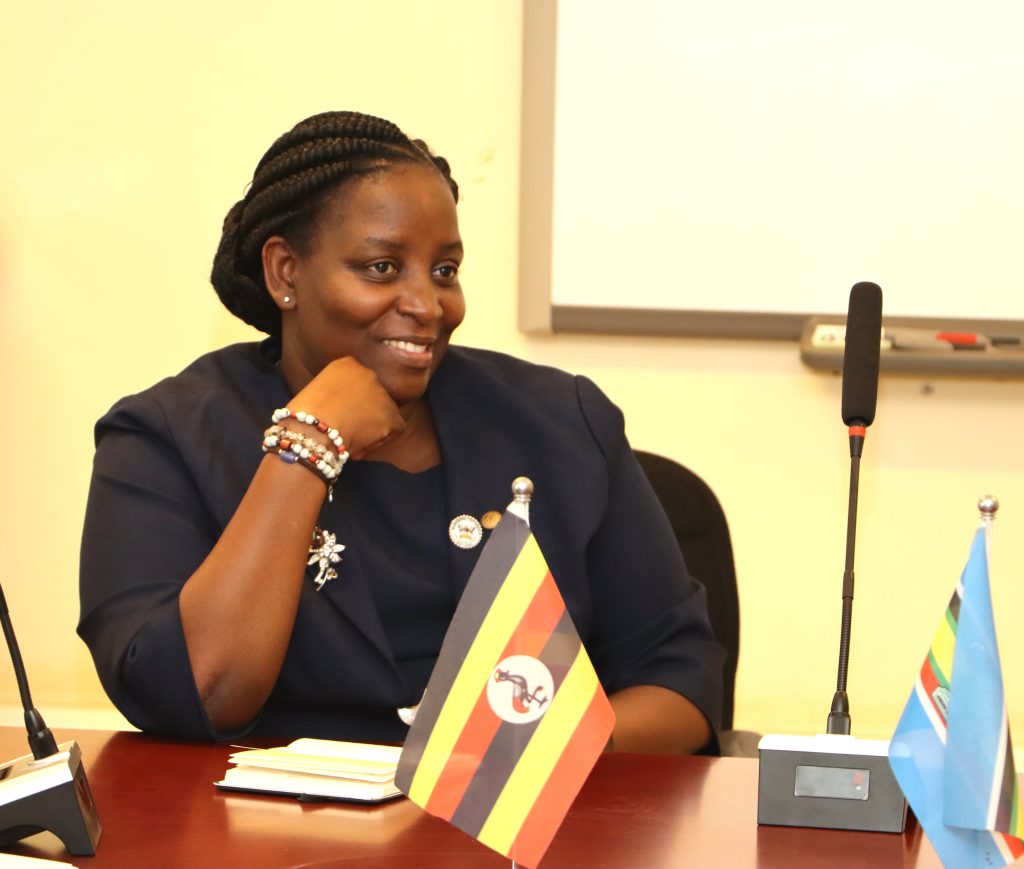
“We must shift from intuition to insight, from routine to reflection,” Prof. Nkabala said in her opening remarks. “Monitoring and Evaluation isn’t just about ticking boxes; it’s about learning from our actions, improving outcomes, and leading with purpose.”
The training was officially opened by Dr. James Nkata, Director General of the Uganda Management Institute (UMI), a postgraduate institution mandated by Parliament to build leadership, governance, and management capacity in Uganda across the public, private, and NGO sectors.
In his address, Dr. Nkata not only championed the value of M&E but also presented a comprehensive and philosophical blueprint for institutional success, touching on themes such as teamwork, leadership, organizational culture, and the centrality of knowledge. His address laid out several powerful, interconnected arguments
Dr. Nkata emphasized the centrality of M & E in institutional success. He said, that M&E is not optional, it is foundational. It offers an early warning system for institutions, allowing them to detect emerging challenges, understand their current status, and prepare for the future.
“You must know what is happening now and what is likely to happen tomorrow. And M&E gives you that power. Without it, leadership becomes blind navigation.”
He lauded CHUSS for prioritizing M&E, calling it a core driver of sustainable progress that many institutions often ignore until problems are already entrenched.
Drawing on his years of experience in higher education, Dr. Nkata underscored the role of M and E in building team work describing it as the backbone of organizational functioning. He gave an impassioned argument about the difference between employees and teams.
“It’s one thing to have people working in an organization. It’s another thing entirely to have them working as a team.”
He illustrated this using an analogy from nature: termites—organisms that demonstrate high-functioning, coordinated labor. In termite colonies, each member has a distinct role, whether guarding, building, feeding, or protecting the queen. There is no interference, only purpose-driven collaboration.
“Like termites, a college should have that kind of structure. Each person contributes from where they are and that’s real teamwork.”
Dr. Nkata stressed that teamwork only succeeds when all units move in a “single-spine direction.”
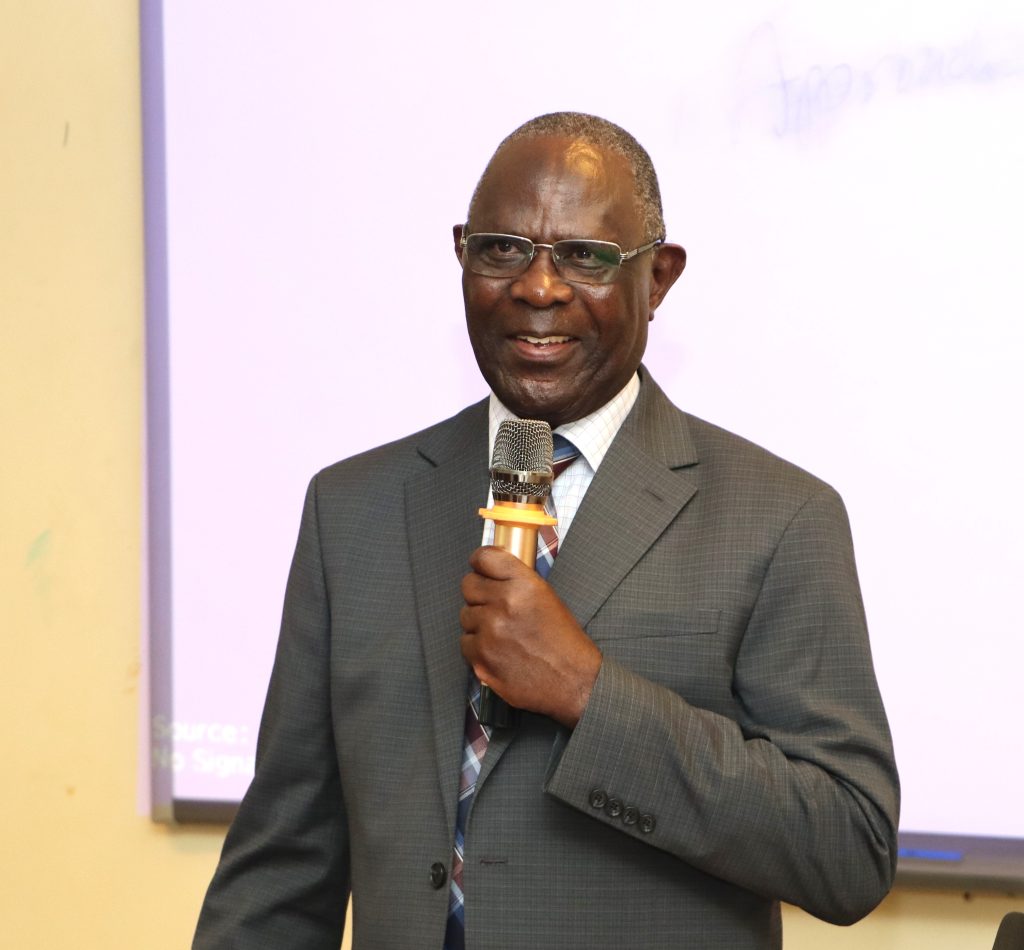
“If an organization lacks a unified direction, it will fragment. You’ll have departments pulling in different directions and no collective progress.”
He urged CHUSS leadership to align their goals, values, and operations so they move as a single body. A shared mission, he emphasized, is what distinguishes functional teams from dysfunctional ones.
In one of his most reflective moments, Dr. Nkata stated that by bringing leaders the college was nourishing its leadership with knowledge as the foundation for action.
“No human being can act or reason beyond what he or she knows.”
He reminded the audience that universities are not just institutions of teaching, but hubs for generating, sharing, and applying knowledge. Without adequate knowledge especially about leadership, administration, and organizational dynamics, decisions risk being shortsighted or even harmful.
“If you want better decisions, empower your leaders with better knowledge. That’s what M&E training is about.”
Dr. Nkata underscored the necessity of internal capacity development as the lifeline of institutions.
“When current capacity leaves, the organization must not collapse. If you have strong internal systems and skilled people, the institution remains resilient.”
He advised CHUSS not to over-rely on external consultants but to nurture homegrown experts who understand the university’s culture, challenges, and goals. He praised UMI’s contribution to this goal and encouraged CHUSS to continually invest in its people.
According to Dr. Nkata, many universities in Uganda struggle with undefined or fragmented workplace cultures. He challenged CHUSS leadership to ask themselves a critical question:
“Do we truly know the worker culture of our university?”
He pointed out that without a shared organizational culture, teamwork falters, communication breaks down, and leadership becomes reactive rather than strategic. He argued that through M&E processes, institutions can create a new, functional culture—based on data, transparency, and mutual accountability.
To further contextualize UMI’s role, Dr. Nkata drew from his own cultural background, referencing the “saver”, a respected elder who supports newlyweds during the marriage journey and continues to check in periodically.
“At UMI, we are savers. We don’t just train and disappear. We come back, evaluate, advise, and support as you implement.”
He stated that UMI sends teams to conduct follow-up evaluations after training sessions. These teams gather feedback and recommend further support—ensuring the training translates into real-world improvements.
Dr. Nkata also touched on the contrast between political appointments and institutional expertise, noting that authority must be grounded in knowledge, especially in universities.
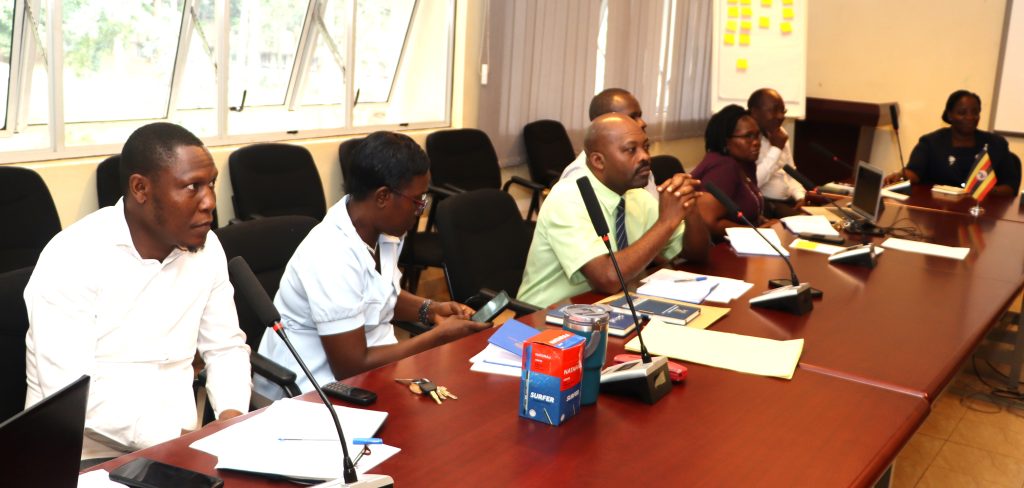
“Politicians speak within the limits of their training. But university leaders must speak with a wider scope, rooted in research, reason, and responsibility.”
He concluded by stating that M&E allows institutional leaders to speak with clarity, insight, and legitimacy, making their leadership both credible and transformational.
The CHUSS M&E training was more than just a skills-building session—it marked the beginning of a deeper cultural shift at the college. Under the leadership of Assoc. Prof. Hellen Nkabala and with the partnership of UMI, CHUSS is embarking on a path toward evidence-based leadership, team cohesion, and internal resilience.
As the Director General reminded attendees:
“Our happiness at UMI is not in the fees we earn, but in the improvement we see where we’ve been.”
With this inaugural training, CHUSS has made a bold and thoughtful investment—not just in systems or metrics, but in its people, its future, and its identity as a transformative academic institution.
